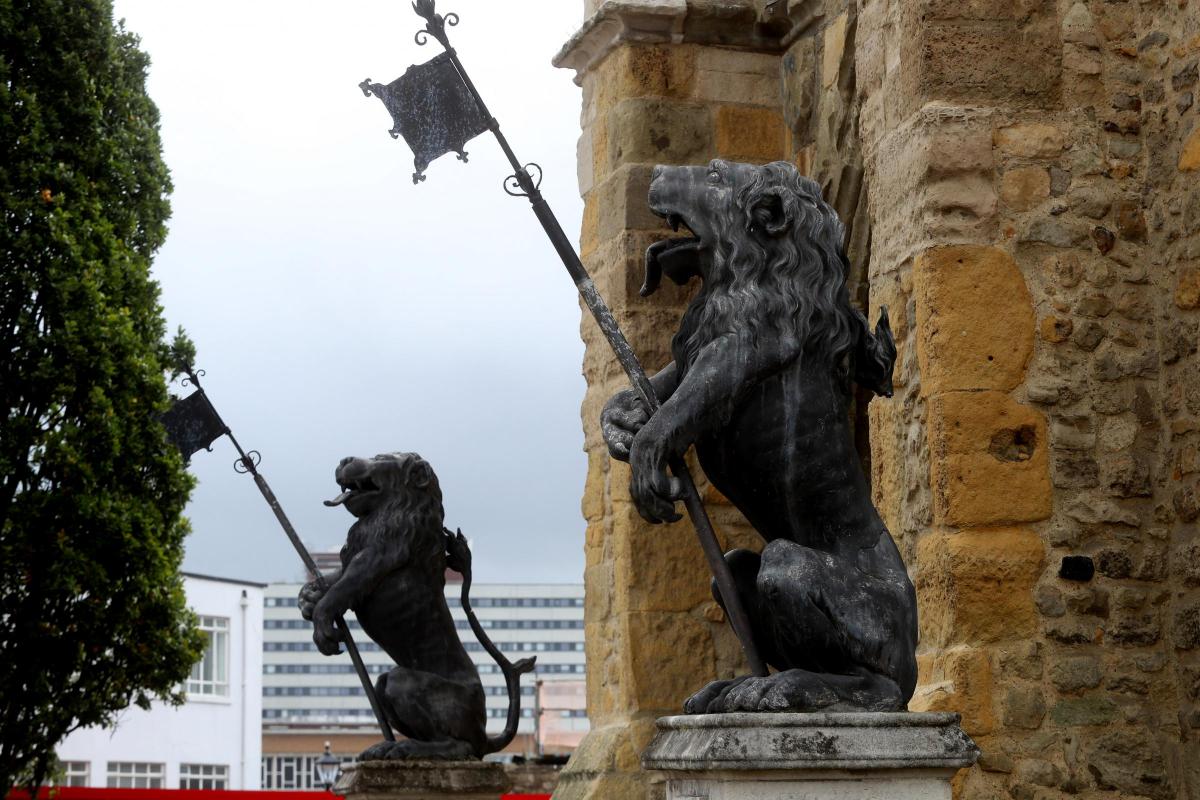Southampton is at the centre of the legend of Sir Bevis which was told by minstrels and storytellers across Russia and Europe up until the 17th century.
Whether the hero of our story’s name is spelt Bevis, Beves, Bevois, Beve, Bueve, Beavis, Boeve, Buovo, or Bovo, the legend is one of the most important non-Arthurian romances in Middle English, according to what Jennifer Fellows explained. Numerous manuscripts survive to this day, including the Auchinleck Manuscript which dates from 1330.
The legend tells of a young Sir Bevois, the son of Sir Guy, Earl of Hampton who was sold to slave merchants by his mother and ended up in the court of Ermin, King of Armenia.
The chronicles tell of his adventures and heroic deeds accompanied by his giant page and squire, Ascupart, armed with a magic sword, Mortglay, and a magical horse, Hirondelle.
As with many epic medieval tales, the story has a romantic element as he fell in love with a Muslim princess – Josian – and fought lions to defend her. When he returned to England to reclaim his father’s land, Sir Bevois is said to have founded the city of Southampton. Some versions of the story have him dying on Arundel Tower, part of Southampton’s medieval castle, which is still standing today.
The two lions that guard the city’s historic Bargate commemorate when Bevois slayed them to protect his true love, Princess Josian.
Near to death, Bevois stood at the top of Arundel tower and made a wish to be buried in the place his sword landed after throwing it.
That spot is marked a little distance away by a now-famous steelmesh artwork at the entrance to Bevois Valley, near Portswood, which is meant to symbolise Sir Bevois’s magic sword.
There are many references to the knight in Southampton, including the Bevois Castle pub, Josian Walk, Bevois Mount, Bevois Town and Ascupart Street.
Whether the legend is fact or fiction lies in the depths of history. The story has been embellished and translated by minstrels and storytellers over the centuries although evidence for the legend can be found in the medieval Auchinleck Manuscript, now held at the National Library of Scotland.

Written by: Venia Soumpenioti – Eurospeak
References:
‘Sir Bevis of Hampton’ by Jennifer Fellows, 2017: ‘Sir Bevis of Hampton is arguably one of the most important non-Arthurian romances in Middle English…’
A History of Southampton. Partly from the Ms. of Dr. Speed, in the Southampton Archives by Rev. J. Silvester Davies, 1883



